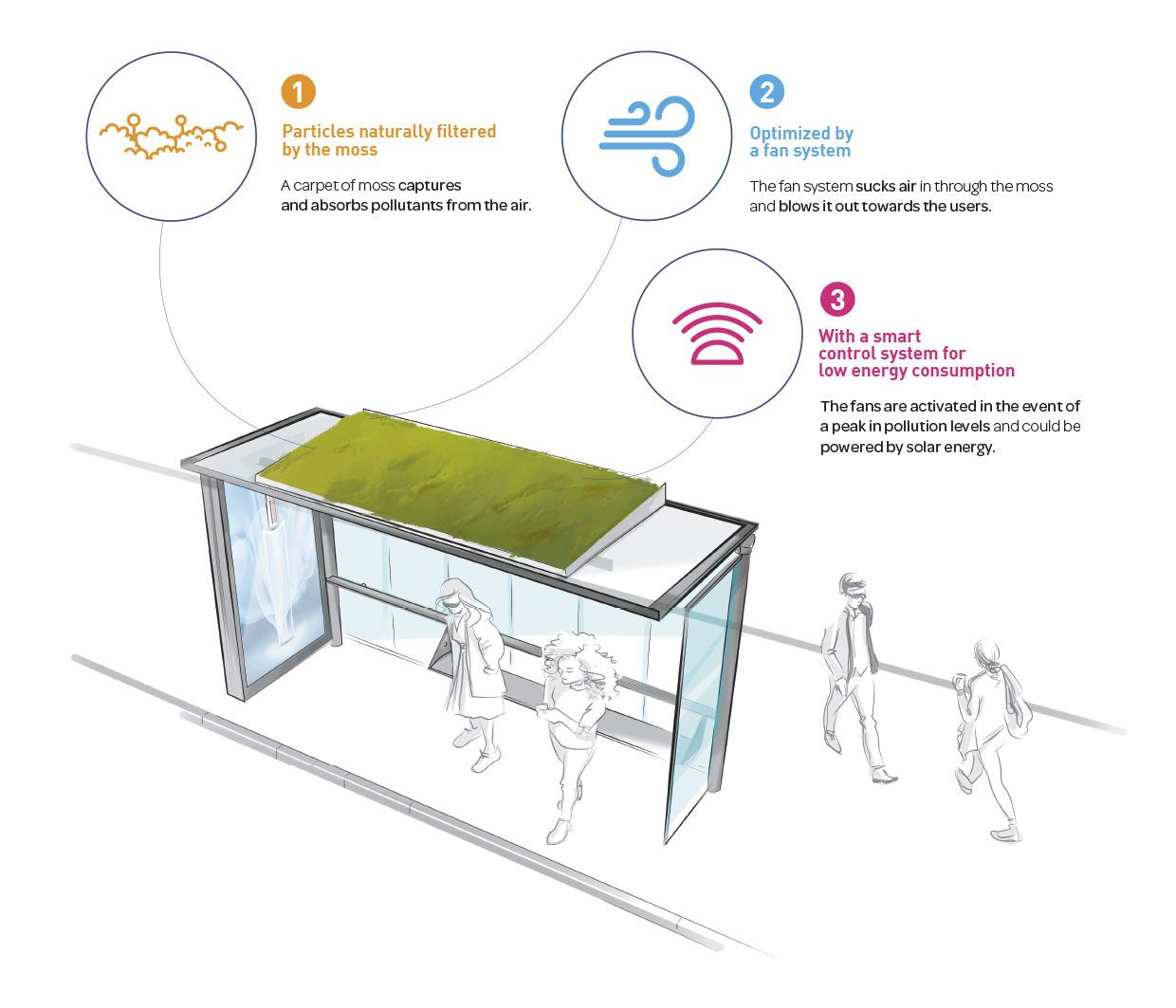Filtreo: a bus shelter to contribute to the reduction of urban pollution
Air pollution: a major concern for cities
Air pollution is a major concern for cities, given its consequences for human health and the environment.
The R&D department of JCDecaux developed the Filtreo bus shelter in response to a study commissioned from the INRA (French national institute for agronomic research), which highlighted the possible impact of urban greening on air pollution. Filtreo is designed to reduce passengers’ exposure to pollutants, particularly fine particles, at the kerbside. This is where concentrations are highest.
Filtreo: a patented innovation combining a natural lifecycle with technological innovation
The roof of the Filtreo bus shelter is actually a carpet of moss that captures and absorbs pollutants. As a particularly hardy plant without roots, the moss develops naturally over the long term, nourished by airborne particles. The roof also includes a built-in ventilation system that sucks air in through the plant layer and blows it out again towards the passengers at the bus shelter.
An intelligent control system activates the fans whenever pollution levels peak. These low-consumption fans could be powered by solar energy.

In spring 2020, an experiment will be conducted in an urban area to test the real-time effects of this natural air purification system in and around bus shelters.
JCDecaux is sustainably improving urban citizens’ quality of life
As a partner to more than 4,000 cities around the world, JCDecaux is innovating continuously not only to limit the environmental impact of its activities, but also to develop solutions for sustainable cities. As well as measuring air quality through sensors installed on specific street furniture, JCDecaux has achieved a new milestone by using Filtreo to experiment with innovative solutions that provide cleaner air inside bus shelters. This also improves users’ experience waiting for public transport in addition to their well-being in the city.
Find more information



